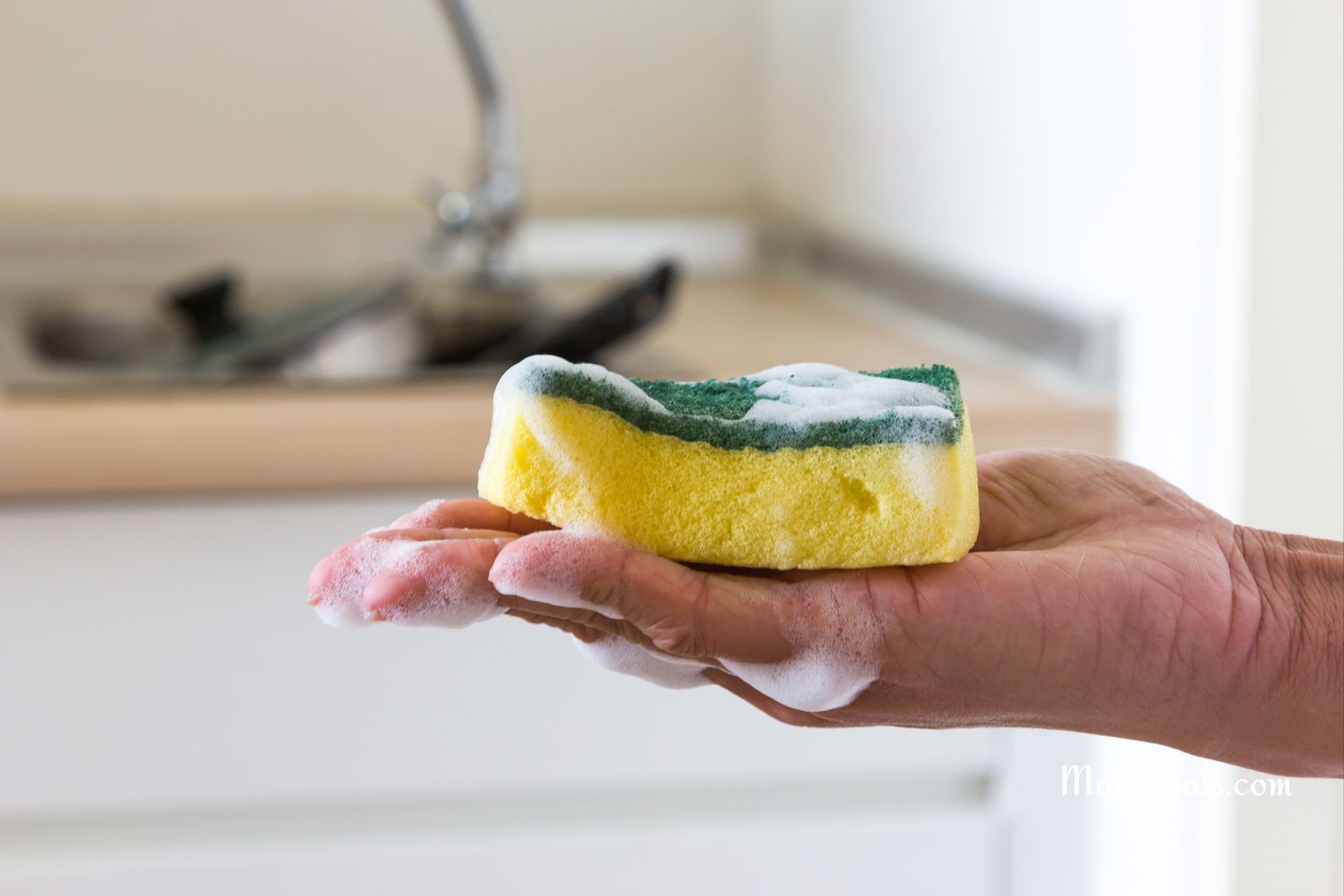How Often Should You Really Replace Your Dishwashing Sponge?
Dishwashing sponges are a staple in most kitchens, but have you ever stopped to consider how often you should replace them? The answer might surprise you. In this article, we will show you how often dishwashing sponges should be replaced.

Why Change Your Sponge Regularly?
Bacteria Buildup
Your kitchen sponge is a hotbed for germs. Every time you wipe a surface, clean a dish, or scrub a pot, your sponge collects bacteria. Research has shown that kitchen sponges can harbor a higher bacteria count than any other item in your home. The warm, moist environment of a sponge is ideal for bacteria to thrive.
Effectiveness and Odor
Over time, your sponge starts to break down. It becomes less effective at scrubbing and can develop an unpleasant odor. This is a clear sign that your sponge is past its prime.
How Often Should You Replace It?
The General Rule
As a general rule of thumb, you should consider replacing your kitchen sponge every week or two. This frequency can depend on how heavily you use it. If you’re an avid cook dealing with raw meats or heavily soiled items frequently, you might want to consider replacing it even more often.
Signs to Replace Your Dishwashing Sponge
Apart from the time frame, pay attention to the physical state of the sponge. If it starts to smell, lose its shape, or shred, it’s time for a new one.
Extending Sponge Life
Regular Cleaning
You can extend the life of your sponge by cleaning it regularly. Microwaving a damp sponge for one to two minutes or running it through a dishwasher cycle with a drying function can help kill bacteria, but remember, this doesn’t eliminate all germs, and the sponge still needs regular replacement.
Alternate Usage
When you replace your kitchen sponge for dishwashing, consider repurposing the old one for less critical cleaning tasks, like scrubbing the bathroom or outdoor furniture. This way, you’re maximizing the use and being more environmentally friendly.
Environmental Considerations
Choosing Eco-Friendly Options
Consider environmentally friendly options like cellulose sponges or those made from natural fibers. These options are more sustainable and often biodegradable.
Balance Between Hygiene and Waste
While it’s important to maintain kitchen hygiene, be mindful of not contributing excessively to waste. This is where cleaning and repurposing your sponges plays a significant role.
Frequently Asked Questions
Can I clean and reuse a sponge indefinitely?
No, even with regular cleaning, a sponge will eventually break down and harbor too many germs to be safe for use in the kitchen. Regular replacement is necessary.
Are there more hygienic alternatives to sponges?
Yes, consider using dishcloths or silicone scrubbers. These can be more easily cleaned and sanitized, and in the case of dishcloths, they can be washed and reused for a longer period.
How do I dispose of old sponges?
If you’re using synthetic sponges, they unfortunately need to go in the trash as they’re not recyclable. Natural sponges can sometimes be composted, depending on their material.
